Finding your dream home can sometimes feel like a nightmare. After going through misleading Zillow posts and dealing with rejected offers, the last thing you want is to hear bad news after your home inspection.
But since home inspections are necessary, let’s look at the bright side: They can save you hundreds of thousands of dollars and years of stress and frustration.
Sometimes, you might not get the news you want, but that doesn’t mean all is lost. There are some things that will come back on your inspection report that you can handle and fix later, like a leaky faucet, failed window seals, or even a settling foundation.
Yes, sometimes a settling foundation isn’t as bad as you think.
There’s a range of normal foundation settlement and then there’s more serious settling that causes foundation problems.
Keep reading to learn:
A good home inspector is worth their weight in gold. After you’ve found a home you love, they’re the ones who will look over every nook and cranny and give you a list of major issues and smaller, less serious warning signs.
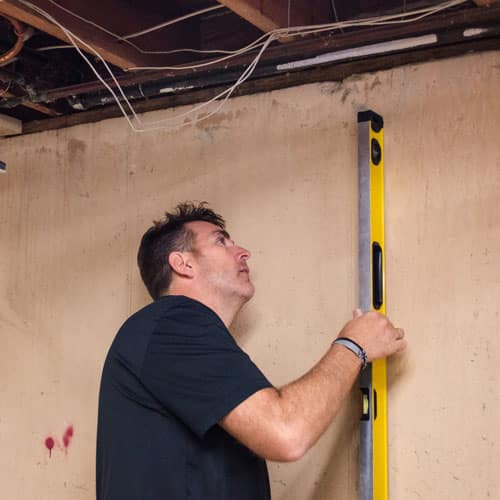
While how in-depth your inspector goes can vary, these are the major things every good inspector should look for during a home inspection:
Anything in these categories can be a deal breaker, but it’s the foundation that can really make or break your home purchase.
A home inspector will especially be looking for a variety of signs that could point to foundation issues. Here’s why.
The first thing you should know is that all buildings settle over time. As the years go by, the structure takes a beating from the weather and the soil underneath the foundation expands and contracts with the seasons, causing the building to settle a bit.
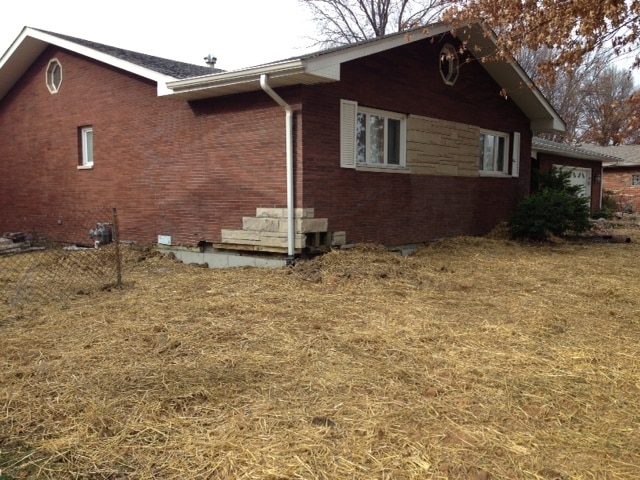
However, this becomes a major problem in two scenarios:
Most builders will take the type of soil and the region’s climate and weather conditions into account when building a new home. For instance, clay soil expands when it’s concentrated with water; this expansion can cause upheaval (another big issue for homeowners). Then, when it dries, it contracts, leading to settling. (If your home is decades old and hasn’t experienced noticeable foundation settling, you know they probably did a good job!)
If the contractor who built the home you’re looking at did not consider soil type, expansion, and contraction or they did not properly compact the soil they dug up, you’ll likely see signs of settling and even damage sooner rather than later.
When a house settles, that creates immense amounts of pressure on the soil below the foundation due to the weight of the structure. This can result in three different types of foundation settling, each more damaging than the last.
Your home inspector should be well-versed in the telltale signs of foundation damage and settling. Some of these signs include:
This is one of the biggest indicators of a house settling, but it’s not just the foundation walls you should look at. Look at the chimney, if there is one, and outside walls. If they don’t seem even, make sure your inspector takes a closer look.
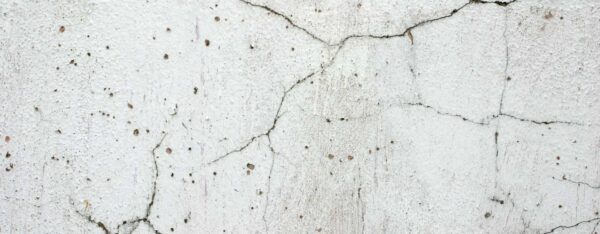
Depending on their size and crack pattern, foundation cracks can mean a little or a lot. Hairline cracks may not mean the house is settling, but stair-step cracks are a cause for concern. Horizontal cracks can indicate hydrostatic pressure, which occurs when too much water builds up behind the foundation.
Again, small cracks can be normal, particularly in old plaster walls. But large, horizontal cracks that run at a 45-degree angle are signs that the house is settling, and the sheetrock is being destroyed.
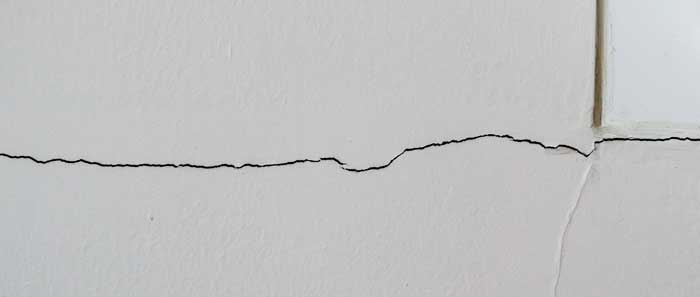
As you’re walking around your potential home, be sure to test out all the doors and windows. If any of them are hard to open or close, that could be a sign of foundation settlement issues.
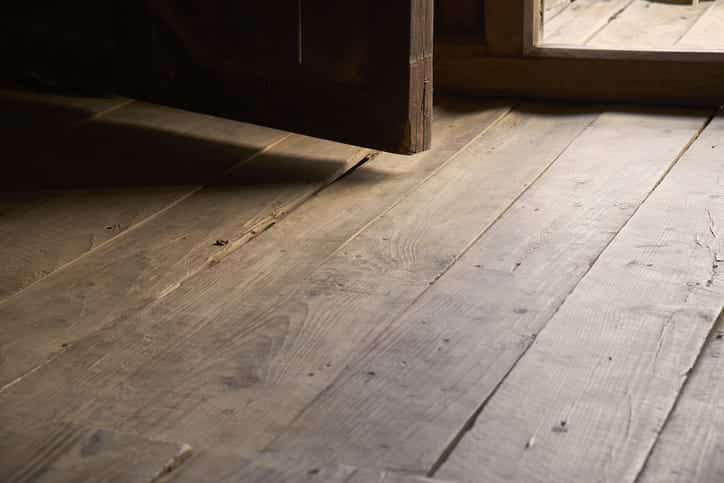
Speaking of windows, take a peek above each of the window frames. Windows create a structural opening and are a vulnerable place in a home, so when the home’s foundation starts settling, cracks will often form here first.
Take a look around the basement and garage floors for any cracks. While these can be indicators of poor waterproofing, they also point to foundation damage. Any water or dampness in the basement or garage often means the same thing.
So now that you know the signs of foundation settling, let’s say your home inspection report comes back with several of these signs listed. You might be wondering, how bad can it really be? Well, it might not be great.
The biggest issue of foundation settling is foundation damage. This alone can cost thousands of dollars to fix, and that’s not even taking into account what happens when further structural damage occurs.
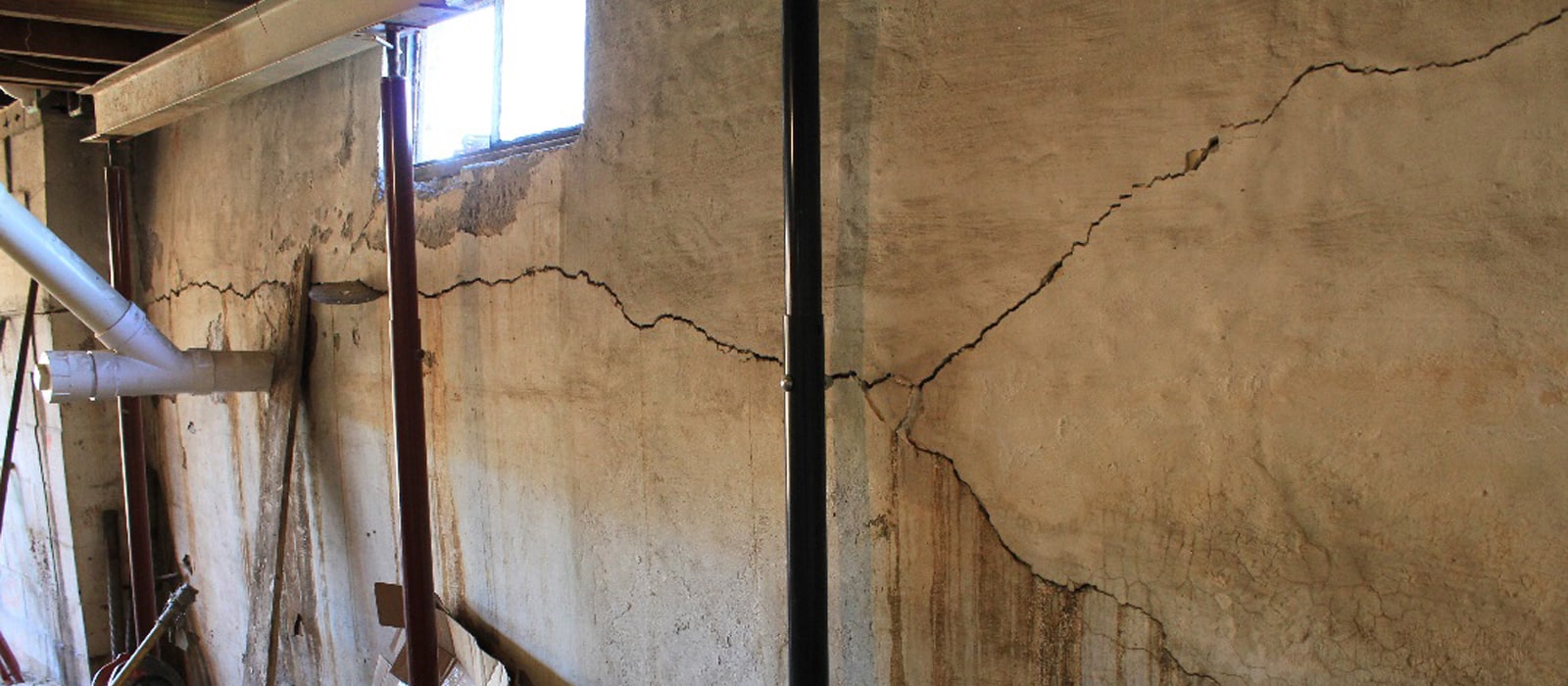
Additionally, foundation settling can cause pipes and sewer lines in the ground or floor joists and rafters in your home to weaken and crack.
Aside from structural issues, you should take into account your financing. If you are using a VA or FHA loan or a HUD program to purchase your home, know that these programs require the home to be structurally sound before proceeding. If the seller won’t repair the foundation, your financing may be pulled.
No matter what type of financing you choose, be prepared to pay higher interest rates or a larger down payment, as some lenders have higher financing requirements for homes with such structural issues.
If your inspector determines you have foundation issues, you should know that there are several foundation repair methods for all sorts of foundation problems. Whether you need foundation piers or a method to lift a concrete block foundation, Helitech’s foundation repair experts can fix your foundation settling so you can start your life in your dream home.
This is a stabilizing system that utilizes helical flights known as helices. These helices, which serve as load-bearing plates for the home, are welded to a steel shaft that is screwed into the ground. This provides a large, even surface area for the weight of your home to rest upon.
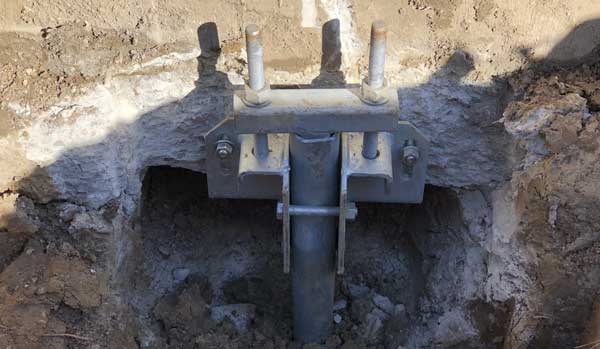
These steel push piers are a common way of performing foundation repair. Steel piers are pushed down into stable soil and then a hydraulic mechanism uses the piers to lift the foundation back up, preventing the house settling from happening again.
If your home is built on a concrete slab foundation, you’ll need a specific type of piering method for concrete slabs called slab piers. The same helical technology is used, but a different type of bracket is installed to transfer the weight of your home to stable soil.
That’s really up to you and there’s not one answer that fits all homes or homebuyers.
When you buy a home, you’re taking on risk in general. With issues like foundation settling and crawl space damage, that risk increases.
However, if this is the home of your dreams, you don’t have to give up completely. You can request repairs from the seller, or you can opt to repair the foundation yourself after closing to make sure it’s done right.
Whether the problem is waterproofing or lack of structural integrity, our team of structural engineers and other foundation repair experts will find the right solution to heal your new home.